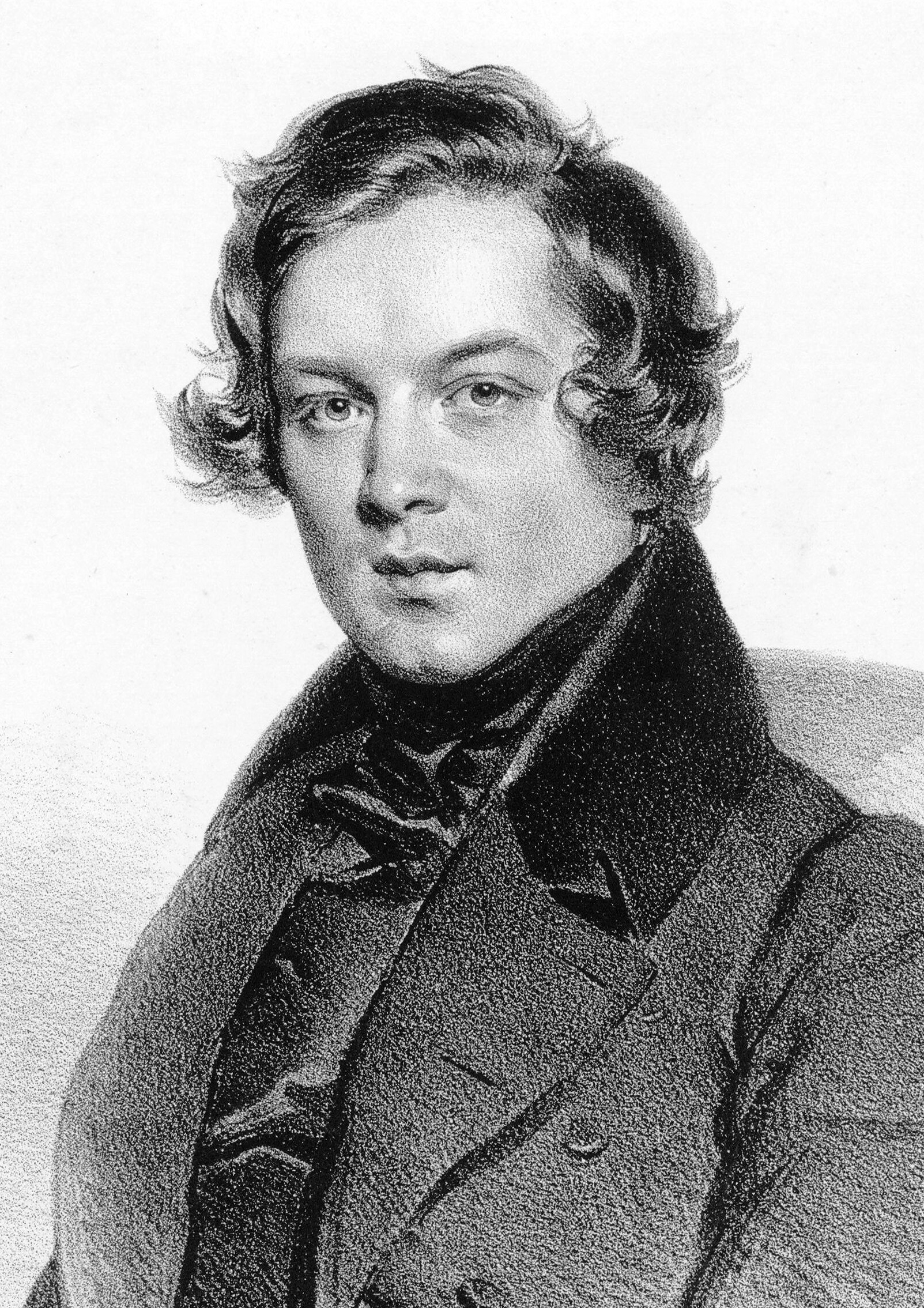Schumann << SHOO mahn >>, Robert (1810-1856), was a German composer and writer on music. Some critics consider him the most important composer of the German Romantic movement. He became best known for his brilliant piano compositions and beautiful songs.

His works.
Schumann’s compositions represent the two contrasting moods of Romantic music and two aspects of his personality. One is the emotional, impulsive, stormy extrovert represented in the musical sketch “Florestan” from the piano composition Carnaval (1834-1835). The other is the quiet, introspective dreamer “Eusebius,” also from Carnaval.
Schumann’s chief works for piano include Symphonic etudes (1834), a Fantasia in C major (1836), and a Concerto in A minor (1845). He also composed short pieces, many of which he organized in groups. These include Papillons (1829-1831), Kinderscenen (1838), Kreisleriana (1838), and Album for the Young (1848).
Loading the player...Traumerei by Robert Schumann
Schumann composed four symphonies; chamber and choral music; an unsuccessful opera, Genoveva (1850); and other works. His songs rank with those of Franz Schubert among the finest German lieder (art songs). In 1840, the year he married, he wrote over 100 songs.
Loading the player...Concerto in A minor
Schumann had a strong influence on various composers of the late 1800’s, especially Johannes Brahms of Germany and Edvard Grieg of Norway. He also influenced several French and Russian composers.
In 1833, Schumann helped found the Neue Zeitschrift fur Musik, a leading music journal. He edited the journal from 1835 to 1844 and wrote many articles for it until 1853. These articles did much to establish the early reputation of such composers as Brahms of Germany, Hector Berlioz of France, and Frederic Chopin of Poland.
His life.
Schumann, the son of a bookseller and publisher, was born in Zwickau on June 8, 1810. He began piano lessons at the age of about 7. In 1828, Schumann entered the University of Leipzig with the goal of studying law. But he neglected his studies and devoted most of his time to music and writing. After a year at the University of Heidelberg, he returned to Leipzig in 1830. Schumann studied piano under the noted teacher Friedrich Wieck. But he injured a finger in 1832, which forced him to abandon his hopes for a career as a concert pianist.
About 1835, Schumann fell in love with Wieck’s 16-year-old daughter Clara, a brilliant pianist. Wieck felt that Clara was too young and Schumann’s future too uncertain for marriage. Despite his objections, the couple were married in 1840 (see Schumann, Clara ).
Schumann began to show signs of mental illness in the early 1840’s, and he later suffered a severe breakdown. He accepted the position of musical director of the Dusseldorf symphony orchestra in 1850, but his increasing mental illness caused difficulties with the musicians. Schumann resigned in 1853. Early in 1854, he tried to commit suicide by jumping into the Rhine River. He was rescued and placed in an asylum, where he died two years later, on July 29, 1856.
